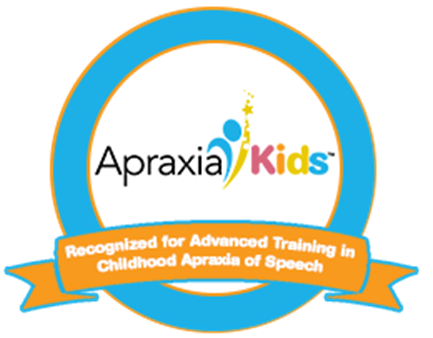
Yes, tongue-ties are a real thing, and for some, it is very painful. The scientific term for a tongue-tie is ankyloglossia or restricted movement of the tongue. A tie can occur in the anterior (front) or posterior (back) of the tongue. You may be surprised to learn that 10-20% of the population born in the United States have a tongue tie. If you suspect a tongue tie, you should consult with a professional to assess and determine the need for intervention. These can include speech-language pathologists, dentists, ENTs, or pediatricians.
There are many consequences of an untreated tongue tie that affect a person differently across the lifespan.
BABIES
Often, I will do a consultation, and the parent will tell me “Johnny had a difficult time latching when I tried to breastfeed him”. Breastfeeding is very difficult for a baby with a tongue-tie. Due to the restrictions of the child’s frenum, the tongue is unable to make the necessary movements to latch and breastfeed. This causes stress for the baby. It also can stress the mother, who was looking forward to this important bonding experience for her child.
At this stage, it is very important to receive input from a lactation consultant. You can also visit a speech-language pathologist, a pediatric ENT, or a Dentist trained in the detection of tongue-ties. For a list of trusted providers, you can consult the resources provided by the International Association of Tongue-Tie Professionals.
TODDLERS
Now your baby is a toddler. Either no one has picked up on the tongue tie, or you have decided not to have surgical intervention. At this point, your child is learning to speak. Due to restricted movements, you may find that your toddler is having difficulty forming a lot of sounds, or that what he is saying does not sound clear (although you know what he is saying!)
Other issues may include difficulty accepting a wide variety of foods. Having a tongue tie means that it is more troublesome for the tongue to move food back and forth in the mouth. This is a necessary movement for handling more complicated textures (i.e. meats, some vegetables). Now that your child is more receptive, it may be possible to do exercises to help lengthen the frenum and allow for more movement. However, if the child does not respond to this type of intervention, it is important to consult with a professional about possible surgical intervention. This can prevent further difficulties from occurring.
SCHOOL-AGED CHILDREN
Your child has now figured out to eat and speak and it is time to go to school. Although your child is bright and has a large vocabulary, he may have difficulty producing some sounds (ch, sh, j, s, z) because the restricted tongue is unable to make consistent contact with the upper portion of the mouth. Speech therapy can be done at this point to correct the production of the sound, but the child may continue to have a “functional lisp” because the tongue is not reaching exactly where it needs to be. Further, a restricted frenum may cause your tongue to block your airway, causing sleep disturbances and attention issues (see my previous post for more information on how sleep affects attention. It is important to speak to your speech-language pathologist at this time for a referral to further assess for tongue-ties (ankyloglossia).
YOUNG ADULTS/ADULTS
At this point, you have no doubt learned to live with your tongue tie and the thought of having a piece of your tongue snipped is scary. Did you know, however, that a restricted frenum may make you a bad kisser?! This information is always helpful in convincing my more reluctant teen clients to go through with the procedure.
Check back next week for more information on Tongue-Ties, and an interview with my client who had a frenectomy (tongue tie surgery) 2 months ago and is already reaping the benefits! Sign up for the mailing list so that you can see it first.
For more information on the assessment and treatment of ankyloglossia, contact me!






0 Comments